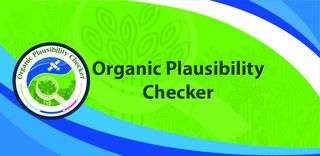The farm to fork approach of the project is based on two components: on satellite data and on supply chain data. The feasibility study will identify appropriate satellite data collection indicators by asking how they can best replace, amend, and complement surveillance and inspection of certified operations. It will further study on how to best integrate with Check Organic’s supply chain mass balance system for proof of field, crop, and yield data. Thus, it will answer to ESA’s call on how the integration of satellite and supply chain mass balance data will result in preventing fraud.
The aim of the project partners is to develop the concept of an "Organic Plausibility Checker", which as a ‘third eye’ could offer new possibilities for monitoring the organic sector. The plausibility checker shall facilitate the work of inspectors and certifiers by reducing or replacing certain on-site activities, to ease the documentation burden of producers and producer groups, and to improve fraud prevention and integrity through accurate data.
In the coming weeks Organic Services will elaborate a questionnaire to be later sent to certification bodies for their input and opinions. This work will be supported by IFOAM – Organics International, ISEAL and the IOAS.
Organic Services is excited to be part of this new ESA project together with GreenEO Germany, an earth observation start-up and Dextro Group Germany GmbH, a specialist in the fields of risk management, risk control and quantitative risk assessment for banks and financial institutions.


